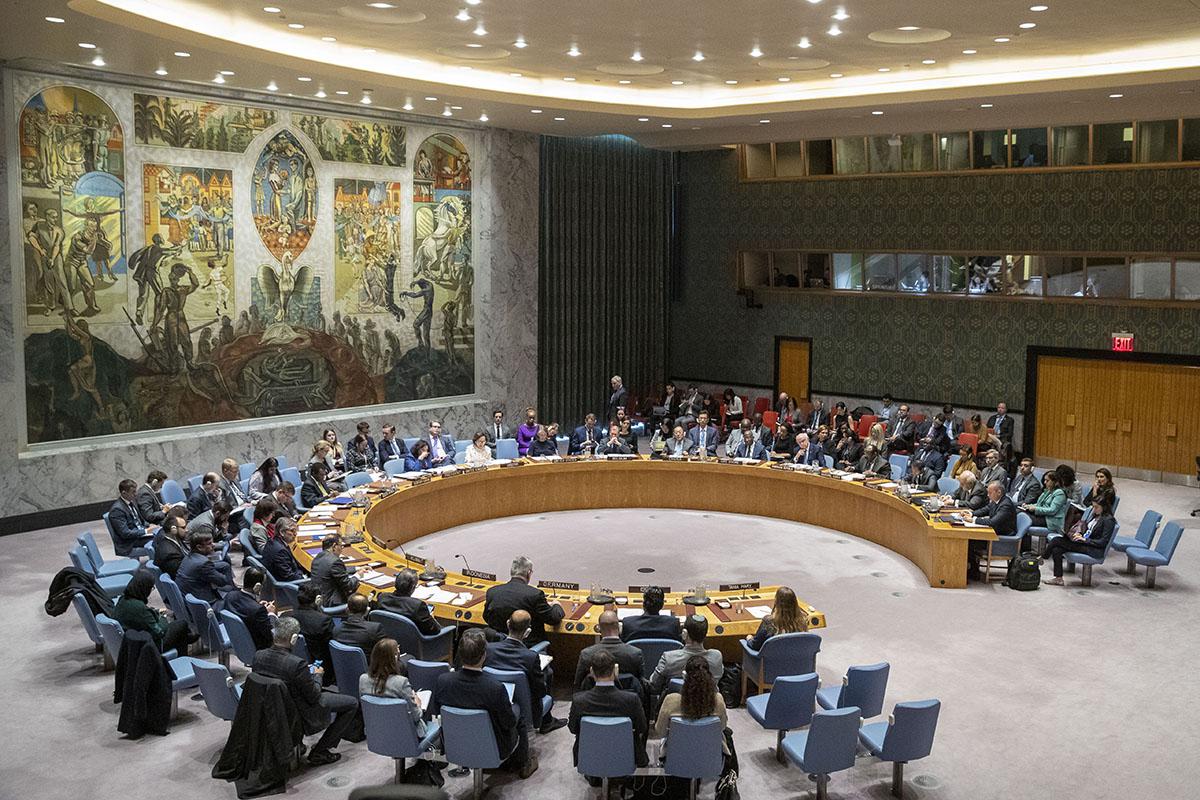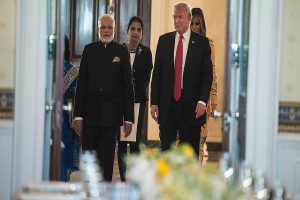Exactly eight years ago, Russia invaded Ukraine to annex Crimea. While talking on the phone with the then United Nations Secretary-General Ban Ki Moon, the interim President of Ukraine at that time, Oleksandr Turchinov, asked for the UN’s support.
The Secretary-General replied that peacekeepers could be sent in only should Russia withhold its veto. What a pity! The UN could do virtually nothing during Russia’s invasion in 2022 also; Russia vetoed a draft UN Security Council resolution deploring Moscow’s “aggression against Ukraine” and demanding the immediate withdrawal of its troops. The veto is a permanent bug. Unfortunately, this is how the UN was designed from the very beginning. And this is part of the reason why it is so useless.
Advertisement
A few days before Russia’s Ukraine invasion in February 2022, when the crisis was looming, the UN Secretary-General António Guterres said that the situation was testing “the entire international system”, adding “we must pass this test.”
The UN, however, failed utterly – as it was destined to – in instrumenting effective international diplomacy. How worthy is it then to maintain a white elephant like the UN? One may recall that the Nobel Peace Prize for 1988 was awarded to the United Nations Peacekeeping Forces “for preventing armed clashes and creating conditions for negotiations.”
However, the United Nations has failed to prevent war and fulfil peacekeeping duties many times during its history: in Palestine, ever since the creation of the Jewish state in 1948, in Cambodia during the 1970s, in the Somali civil war since 1991, in the Rwandan civil war in 1994, during the Srebrenica Massacre in 1995, during the Darfur conflict in Sudan since 2003, in the Iraq invasion during 2003-11, in the Syrian civil war since 2011, in South Sudan since 2013, in the Yemen civil war since 2014, during the Rohingya crisis in Myanmar since 2017, among others.
On the 20th anniversary of the Rwandan genocide in Kigali, Ban KiMoon admitted that the UN had done a lot to prevent the slaughter of hundreds of thousands of Tutsis but “could have done much more”. Certainly, it could have done more with the Rohingya crisis, in Afghanistan, in the Arab Spring, amid disasters in Haiti, the Philippines, and in many other places. And, of course, there is the classic example of the Security Council’s authorisation of force to turn back Saddam Hussein’s Iraq after its invasion of Kuwait in the early 1990s. Is the 76-year-old UN a toothless and clawless body that no one takes seriously? Is it almost defunct?
António Guterres described Russia’s move (to recognize the so-called ‘independence’ of certain areas of the Donetsk and Luhansk regions) as “a death blow” to the Security Councilendorsed Minsk Agreements, the fragile peace process regulating the conflict in eastern Ukraine. One serious problem of the UN is deeply rooted in the veto power bestowed on the five permanent members. Any of the Big Five can stop any resolution unilaterally.
When the UN was founded in 1945, permanent membership of the Security Council and the veto power ensured that America and the Soviet Union had nothing to worry about – however undemocratic that may sound. Due to this veto power, each of the Big Five could act without any fear of reprisal from the UN. Amnesty International claimed that the five permanent members had used their veto to “promote their political self-interest or geopolitical interest above the interest of protecting civilians”.
It helped Russia in Hungary, Czechoslovakia and Ukraine, the US in various Latin American countries, the UK in the Falklands, France in Africa, and China in Tibet. With about 44,000 staff and 17 legally independent specialized agencies, the UN has spent well over half a trillion dollars in the past 76 years, and half the expense is basically the operational cost of its offices.
In an article in ‘The Guardian’ in 2015, Chris McGreal wrote: “The United Nations has saved millions of lives and boosted health and education across the world. But it is bloated, undemocratic – and very expensive.” The US is the largest provider of financial contributions to the UN, providing 22 per cent of the budget in 2020. Thus, Donald Trump certainly had reason when he had sought major funding cuts to UN agencies, although Congress by and large approved higher contributions than requested by his administration.
During the Cold War, Dag Hammarskjöld, the second Secretary-General of the UN, invented the concept of “peace-keeping” so that superpower standoffs would not paralyse the organization. It worked, to some extent, at least. The shining side is that the UN won several Nobel Peace Prizes for its peace-keeping efforts and the works of several of its organizations over years. But the UN peacekeepers triggered a cholera epidemic in Haiti causing over 10,000 deaths, which the UN took six years to acknowledge.
An Associated Press investigation found “nearly 2,000 allegations of sexual abuse and exploitation by peacekeepers and other personnel around the world” over a 12- year period, of which 300 allegations involved children. Still, many people believe that the UN, simply being a place for nations to come together, is vital in world affairs, and hence is very far from being useless. Also, there are its international development and humanitarian works. Those favouring the UN often quote Dag Hammarskjöld who said that the UN “was created not to lead mankind to heaven but to save humanity from hell”.
Of course, the concept of ‘hell’ might have changed from the realm of the post-World War era and the Cold War period. Many believe that even a weak UN is better than no UN. As Shashi Tharoor recently perceived: “If the United Nations did not exist, today’s divided world would be incapable of inventing it. Let’s be grateful for the UN we have. We’d be much worse off without it.” There are others who would share this view.
“Like everybody says, if you didn’t have the UN you’d have to invent it,” said David Shearer, the New Zealand politician, who served the UN in senior posts. “But it’s imperfect, of course it is, and everybody knows that it is,” he said. Is it time to recreate the United Nations by debugging it as much as practicable? “The United Nations of today is hugely different from the United Nations 70 years ago, and therefore it is very important the United Nations changes and adapts itself to changing circumstances,” Ban Ki-Moon said.
Former US Sen. Bob Corker, the Tennessee Republican, had been calling for reforms in the UN. But would a US Senator agree to abolishing the veto power? For, a new avatar of the UN without the veto power of the Big Five might work much better for humanity. The UN’s dependence on the big powers such as America and China for money is certainly a major constraint. And then, New York is too close to Washington DC, as perceived by Alexander Nekrassov, a former Kremlin and government adviser, in 2014. What about the UN shifting its headquarters from the cozy comfort zone of New York?
Come closer to the ground reality of Kigali or Mogadishu, have the headquarters there, maybe rotate it periodically through Naypuidaw, Sana’a, Colombo and Addis Ababa, if you really want to serve people. The world desperately needs a UN, changed and debugged.
(The writer is Professor of Statistics, Indian Statistical Institute, Kolkata)











